Preparedness
Hartford Citizens Tackle Rising Crime with Legally Armed Patrols
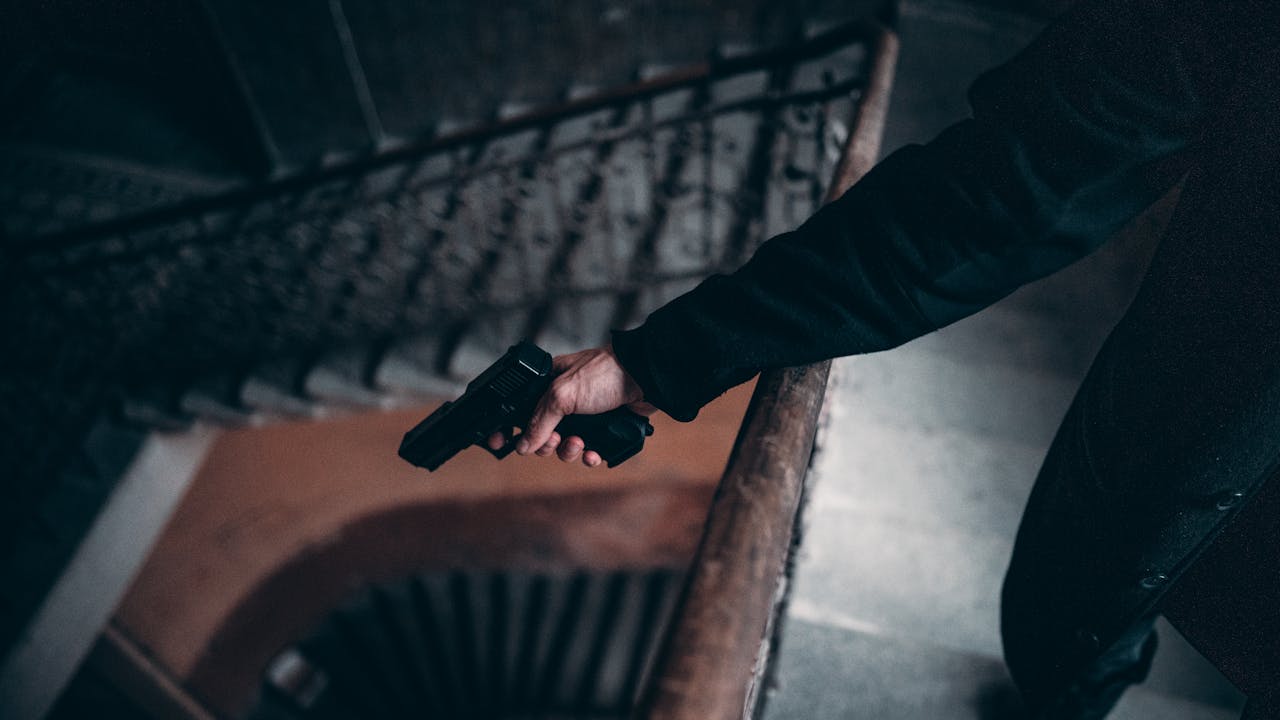
In the heart of Hartford, Connecticut, a neighborhood predominantly composed of black residents has decided to tackle the increasing violent crime by turning to an unexpected source of protection – a group of legally armed citizens. This self-appointed group, named the “Self-Defense Brigade,” hopes to reduce crime rates and establish a sense of security within the community, as reported by the New York Post.
The brigade consists of approximately 40 armed citizens who volunteer their time and resources to patrol Hartford’s North End, especially during the evenings and weekends. Donning body cameras as part of their equipment, they remain vigilant and committed to their cause.
“I believe in self-defense, but I will try to defuse it in every way possible.”
Their vigilance is not limited to the streets; the group’s arsenal expands to drones and 75 home surveillance systems to monitor possible criminal activities in real-time. This allows them to focus their attention on potential crime hotspots and respond accordingly.
Cornell Lewis, the founder of the Self-Defense Brigade, has been vocal about the reasons behind the formation of the group. According to Lewis, the local Democratic leadership has failed to ensure the safety of the community.
“The Democratic machine in Hartford is either unwilling or unable, incapable of doing it, and people are paying their tax dollars, and they’re not getting any kind of service.” Lewis said. “So we want the people to understand, number one, self-defense is not a dirty word.”
However, not everyone shares the same sentiment. Hartford’s Democratic Mayor Arunan Arulampalam has expressed concerns over the possibility of the group becoming vigilantes.
“Our community has seen so much pain and trauma, and what we need is for those who love this city to do the hard work of healing that pain, not walk around our streets with guns trying to take the law into their own hands,” Arulampalam said.
Despite criticism, Lewis remains determined to educate the community about self-defense, especially in situations where the police might not be available. Lewis also emphasizes the importance of de-escalation in potentially dangerous situations.
“I believe in self-defense, but I will try to defuse it in every way possible,” Lewis reiterated. “But if it’s clear that you’re going to attack, or you pull out some weapons, then we have a right to defend ourselves.”
Lewis firmly denies the accusations of the group being vigilantes and asserts that all members are trained in discipline legal security. He also adds that while all members have legal permits to carry concealed weapons, he himself is a fourth-degree black belt and has trained members in hand-to-hand combat.
The Self-Defense Brigade took to the streets after a tragic incident left two men dead in front of the Walk in the Light Church of God last February. Commenting on the group’s impact, Archbishop Dexter Burke said, “I feel that we are really putting a dent on crime. I think that we’ve exceeded 100% in terms of success.”
Let us know what you think, please share your thoughts in the comments below.

Preparedness
Survival in a Changing America: Why Preparedness Matters More Than Ever
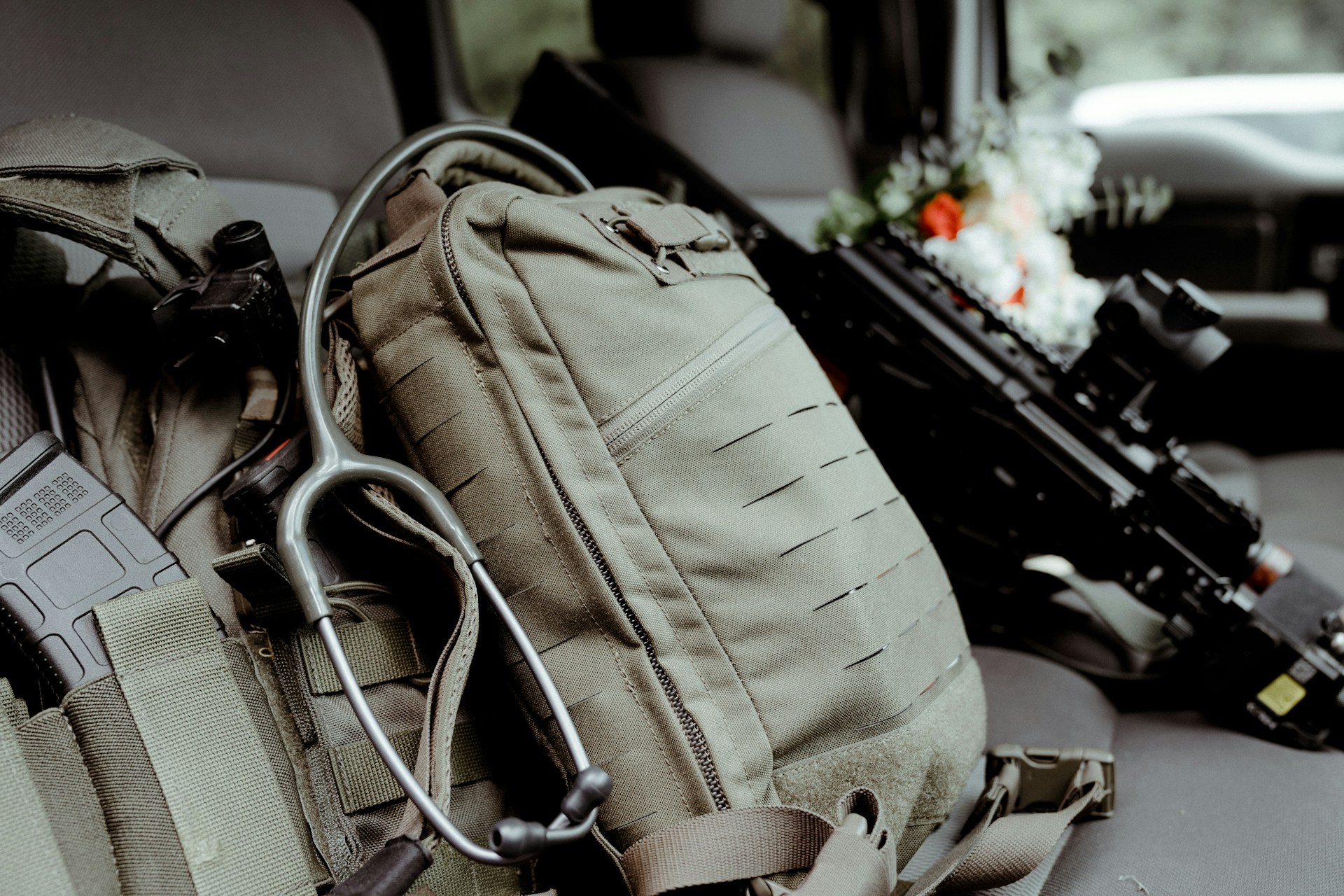
Survival isn’t just about wilderness skills or stockpiling food. In today’s America, survival means being ready — financially, mentally, and physically — for rapid change. Under President Trump’s current term, the country is moving fast. Supporters see decisive leadership, tougher borders, economic nationalism, and a renewed focus on American strength. But with that speed comes disruption, resistance, and uncertainty. That’s where personal preparedness comes in.
President Trump has made it clear he believes in self-reliance, national security, and strength over dependence. Those same principles apply at the household level. Whether it’s supply chain pressure, political unrest, inflation, or grid stress, Americans who prepare are simply harder to shake.
1. Control What You Can Control
Trump’s presidency has emphasized America first — but that mindset starts at home. You may not control Congress, global markets, or activist judges, but you can control your food, water, cash reserves, and personal security. A prepared household is less vulnerable to sudden price spikes, shortages, or emergencies caused by political or economic battles in Washington.
Stocking basic food, having backup power, and keeping cash on hand isn’t paranoia — it’s responsibility.
2. Supply Chains Are Still Fragile
Despite economic growth claims and lower energy prices in some areas, grocery costs and essentials remain unpredictable. Trump’s push for tariffs and reshoring manufacturing is aimed at long-term strength, but transitions aren’t painless. Short-term disruptions happen before long-term gains materialize.
Smart Americans don’t wait for headlines to confirm trouble. They quietly build buffers: extra food, household necessities, and alternative sourcing.
3. Civil Unrest Isn’t Going Away
Trump’s presidency continues to expose deep political divides. Protests, counter-protests, and aggressive rhetoric aren’t disappearing — they’re becoming normalized. Survival today means knowing how to avoid trouble, not chase it.
Situational awareness, safe travel habits, and basic home security upgrades matter more now than they did a decade ago. Strong borders don’t eliminate internal instability overnight.
4. Medical and Personal Readiness Matter
Government systems get stressed during shutdowns, disasters, or mass events. Trump often criticizes bloated bureaucracy for a reason — it moves slowly when speed matters. Having basic medical supplies, prescriptions, and personal health plans ensures you don’t depend entirely on institutions that may lag when demand spikes.
Preparedness is independence.
5. Survival Is a Mindset, Not Fear
Trump supporters are often labeled “fearful,” yet preparedness is the opposite of fear. It’s confidence. It’s knowing that no matter what happens — politically, economically, or socially — your family is stable.
The core Trump message has always been strength, resilience, and refusing to be weak or dependent. Survival thinking aligns perfectly with that philosophy.
America is changing. Fast leadership brings fast reactions. The prepared citizen doesn’t panic, protest, or plead — they adapt.
Survival today isn’t about hiding from the future. It’s about being ready to face it head-on.
Preparedness
How U.S. Citizens Should Stay Safe When Traveling Abroad

Traveling internationally can be rewarding, but it also carries risks that vary widely by destination and situation. The U.S. government offers specific safety guidelines to help American travelers prepare, stay informed, and protect themselves throughout their trip.
Here are key practices U.S. citizens should follow to stay safe overseas:
1. Check Travel Advisories Before You Go
The U.S. Department of State issues travel advisories for every country. These advisories use a four-level system to show risk:
- Level 1: Exercise normal precautions
- Level 2: Exercise increased caution
- Level 3: Reconsider travel
- Level 4: Do not travel
Before booking or departing, always review the current advisory for your destination. Higher levels indicate serious risks like crime, civil unrest, terrorism, health emergencies, or limited emergency services.
2. Enroll in the Smart Traveler Enrollment Program (STEP)
Before departure, sign up for the Smart Traveler Enrollment Program (STEP). This free service connects you to the nearest U.S. embassy or consulate and keeps you informed with real-time updates about safety, weather, civil unrest, or health issues in your destination. It also makes it easier for authorities to contact you or your emergency contacts if needed.
3. Know Local Laws and Customs
U.S. citizens abroad must obey the laws of the country they are visiting. Local legal systems and penalties can differ significantly from those in the United States. Travelers should research local laws, dress codes, cultural norms, and any restricted activities before departure to avoid fines, detention, or legal complications.
4. Prepare Important Documents and Contacts
Carry your passport with you at all times and make digital copies of important documents like your passport page, travel insurance, and emergency contacts. Leave copies with someone at home and store them securely online. Keep local embassy contact information readily available in case you need assistance while abroad.
5. Have a Personal Emergency Plan
Emergencies can range from civil unrest and natural disasters to health crises and lost travel documents. Plan ahead:
- Know where the U.S. embassy or consulate is in your destination
- Have a communication plan with family or friends back home
- Know your travel insurance coverage and how to access medical care while abroad
- Understand evacuation routes and local emergency services
During a crisis, the U.S. government may not be able to evacuate you immediately. You should be ready to use commercial travel options to leave if it is safe to do so.
6. Stay Alert and Use Common Sense
Travel safety often comes down to ordinary precautions:
- Avoid risky areas and follow local authority instructions
- Keep a low profile and avoid displaying expensive items
- Be aware of your surroundings, especially in crowded or unfamiliar places
These practices reduce the chance of being targeted for theft or other crimes.
Why This Matters Today
Global travel risks can change quickly due to political tensions, health outbreaks, or civil unrest. For example, the U.S. government has issued worldwide travel caution alerts during periods of heightened international tension, underscoring the importance of staying updated with current risks.
Summary of Key Safety Steps
- Check official travel advisories for your destination
- Enroll in the Smart Traveler Enrollment Program (STEP)
- Know local laws and customs
- Carry and secure important travel documents
- Prepare a personal emergency plan
- Stay alert and cautious throughout your trip
Preparedness
5 Things You Need to Travel Across America Safely and Legally

Traveling across the United States is one of the great freedoms Americans enjoy. Whether you’re driving state to state, flying cross-country, or taking a long road trip, staying safe and fully within the law doesn’t require anything complicated. It just takes preparation, awareness, and a few essentials that every traveler should have in place before they go.
Here are five things you need to travel across America confidently, safely, and legally.
1. Valid Government-Issued Identification
This is non-negotiable.
A valid ID proves who you are and allows you to travel without unnecessary delays or problems.
For most people, this means:
- A valid driver’s license or REAL ID
- A state-issued ID card if you don’t drive
- A valid U.S. passport (especially useful for air travel)
If you’re flying, your ID must meet TSA requirements. If you’re driving, your license must be current and not suspended. Keep your ID easily accessible, but secure.
2. Proof of Legal Residency or Citizenship (If Applicable)
If you are a U.S. citizen, carrying proof such as a passport or passport card adds an extra layer of security during long trips, especially near border states or when flying.
If you are a legal resident or visa holder, you should always carry:
- Your valid visa or green card
- Any required travel documents associated with your status
Having proper documentation protects you from misunderstandings and unnecessary stress.
3. Proper Vehicle Documents (If Driving)
If you’re traveling by car, make sure your paperwork is up to date.
This includes:
- Vehicle registration
- Proof of insurance
- A valid driver’s license
Law enforcement checks are routine and usually brief when paperwork is in order. Keeping documents organized shows responsibility and helps everything go smoothly.
4. A Safe and Legal Travel Plan
You don’t need a strict itinerary, but you should know where you’re going and how you’ll get there.
A smart travel plan includes:
- Knowing your route and major stops
- Booking legal accommodations (hotels, campgrounds, or rentals)
- Understanding basic state laws (speed limits, phone use, toll roads)
Each state has its own rules, and being aware of them helps you avoid fines or problems.
5. Emergency Contacts and Communication
Safety isn’t just about laws — it’s about preparedness.
Carry a charged phone, a car charger or power bank, and a written list of emergency contacts in case technology fails.
It’s also wise to:
- Share your travel plans with someone you trust
- Check weather conditions regularly
- Keep emergency numbers saved and written down
Prepared travelers are calm travelers.
Final Thought
Traveling across America legally and safely doesn’t require fear or special permissions. It requires valid identification, proper documents, respect for local laws, and basic preparedness.
When you travel with everything in order, you’re free to enjoy the journey — not worry about it.
-
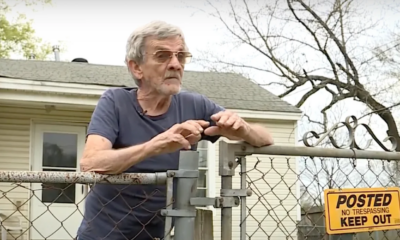
 Tactical2 years ago
Tactical2 years ago70-Year-Old Fends Off Intruder with Lead-Powered Message
-

 Off The Grid3 months ago
Off The Grid3 months ago10 Foods That Could Save Your Life When Grocery Shelves Are Empty
-
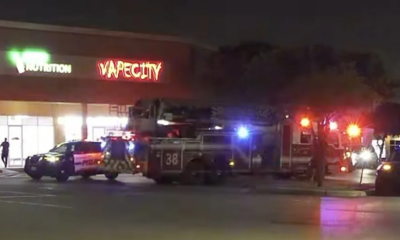
 Tactical2 years ago
Tactical2 years agoVape Shop Employee Confronts Armed Crooks, Sends Them Running
-

 Preparedness3 months ago
Preparedness3 months ago5 Things You Should Always Carry During a Winter Storm
-

 Preparedness2 years ago
Preparedness2 years agoEx-Ballerina’s Guilty Verdict Sends Tremors Through Gun-Owner Community
-

 Nature and Wildlife3 months ago
Nature and Wildlife3 months ago10 Survival Skills You Should Learn Before You Need Them
-

 Preparedness1 year ago
Preparedness1 year agoGood Samaritan Saves Trooper in Harrowing Interstate Confrontation
-
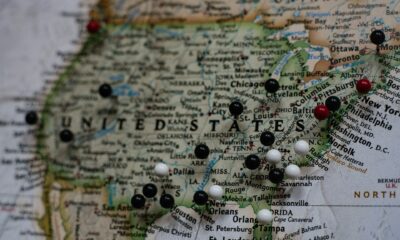
 Preparedness8 months ago
Preparedness8 months agoDiscover Free Land in These Three Surprising States
Neal Mallett
June 21, 2024 at 11:34 am
They wouldn’t be in this situation in the first place if the mayor wasn’t so condescending and actually cared about the citizens concerns about crime and actually did something about it.
ardvark
June 21, 2024 at 11:57 am
Self defense especially with weapons tends to get in the way of communists goals, especially when the little people still have weapons!
David
June 21, 2024 at 1:03 pm
Criminals are going to think twice about committing crimes in areas where citizens band together to protect themselves and their families. Armed with modern weapons the protectors will definitely lower the crime rate. Now the judicial system should do their part and keep the thugs off the street. The democratic revolving door system is generating this need of self protection.
Bill
June 21, 2024 at 1:15 pm
We’ve entered a time where the crooked politicians are not looking out for the citizens. If theh think people are going to continue licking yhemsrlves in gheur homes and wait ghe inevitable attack, they are wrong. I commend these men.
kathy strickland
June 21, 2024 at 2:55 pm
It will be more and more necessary as the crime gets worse with the current problems we are having.
ME
June 21, 2024 at 3:17 pm
And this kind of crap would be illegal if WHITES were doing it to protect their property. Enforce the laws EQUALLY, otherwise, “laws” mean NOTHING.
TRM
June 21, 2024 at 4:33 pm
Are the vigilantes trained in the law? This program will end when they shoot the first person by mistake and they get prosecuted.
Old Man
June 21, 2024 at 8:34 pm
Shoot now, ask questions later.
Mary Gibson
June 22, 2024 at 5:08 am
Food for them. They stepped up when weak government won’t!
Mary Gibson
June 22, 2024 at 5:09 am
Good for them!!
David
June 24, 2024 at 12:50 pm
Citizens should be grateful their neighbors are willing to give up their precious time to help keep them safer. I support Police but they have been reduced to report writers. The Police vehicle these days should say “report writer” instead of “serve and protect”.
Herb
June 24, 2024 at 2:53 pm
Since the legal system is failing to control crime someone has to step up and do the job. An unarmed patrol would just be a target of criminals.
DAVID
June 25, 2024 at 7:13 pm
When government doesn’t do its duty the citizenry should do their duty. BUT AT THE SAME TIME VOTE THE JERKS OUT THAT DON’T DO THEIR DUTY